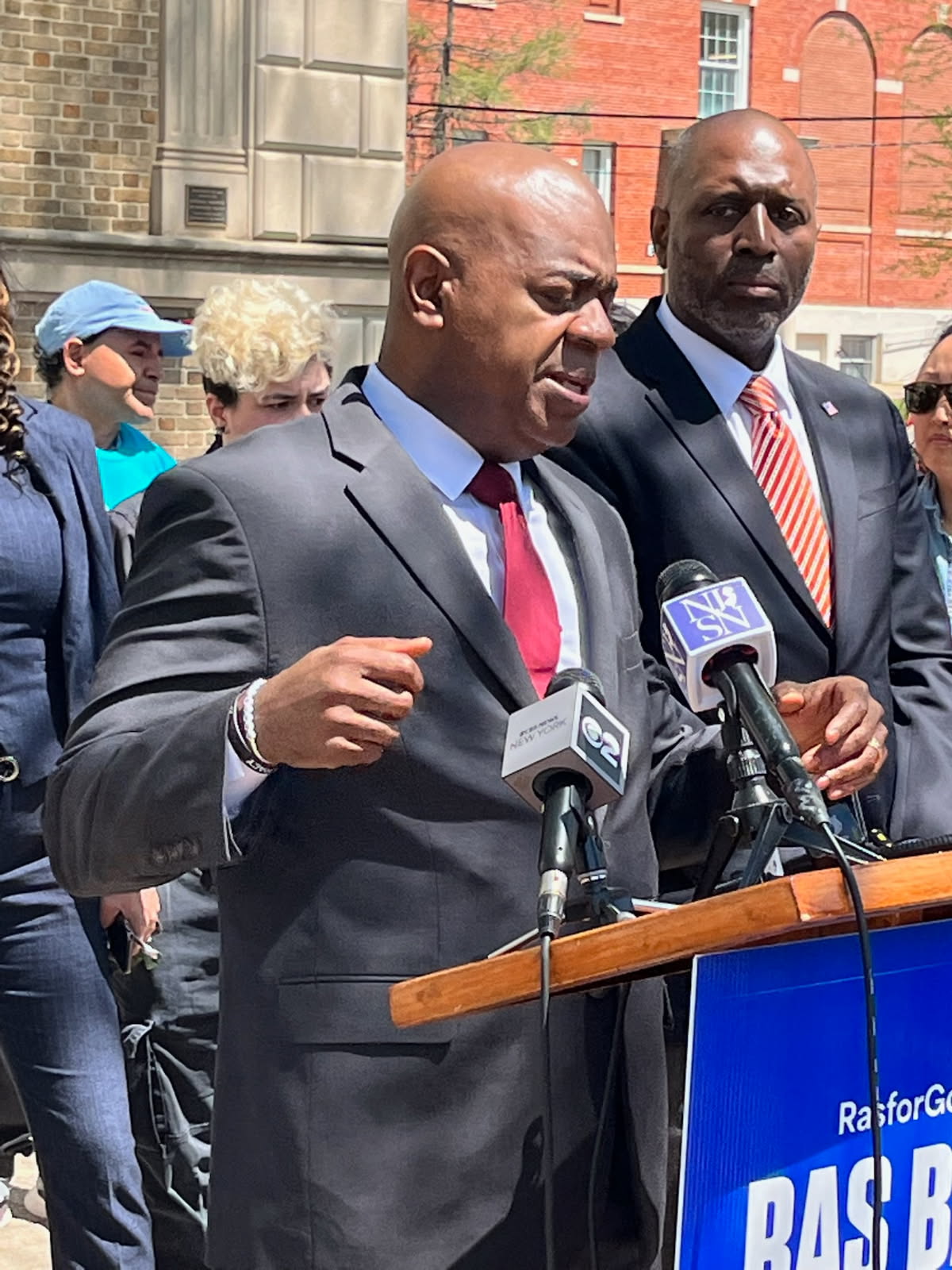
Attorney General Matthew J. Platkin and the Division of Criminal Justice (DCJ) announced today that 10 people – including a temporary Department of Labor and Workforce Development (DOL) employee – were indicted in March 2025 for allegedly illegally collecting unemployment benefits and other crimes during the COVID-19 pandemic. These crimes are unrelated to one another but highlight the ongoing investigative and enforcement efforts related to pandemic era frauds.
“Unemployment benefits exist to provide income to New Jersey workers who find themselves out of a job through no fault of their own,” said Attorney General Platkin. “Stealing this money is a serious crime, and we are always on the lookout for those who try to line their pockets with limited public resources. When, as is alleged in one of these cases, the defendant is a Department of Labor employee, the offenses are especially egregious.”
“Even though it has been more than five years since the COVID-19 pandemic began, we are still uncovering cases of fraud and abuse in our New Jersey unemployment benefits program and in other programs that were created to help people financially in difficult times,” said DCJ Director Theresa L. Hilton. “We will continue to investigate these cases to find those who broke the law by trying to game the system to get their hands on benefits to which they were not entitled.”
“We thank our partners at the Office of the Attorney General for their ongoing, shared commitment to rooting out fraud, and prosecuting anyone who would commit the reprehensible act of exploiting the unemployment insurance system, especially during a crisis,” said Labor Commissioner Robert Asaro-Angelo. “New Jersey’s nationally recognized anti-fraud efforts will continue to safeguard this critical lifeline for those in genuine need.”
Vanessa Allen of East Orange, New Jersey; Jeffson Cues of Newark, New Jersey; Nerlande Etienne of Irvington, New Jersey; and Rose Allen of East Orange, New Jersey, are all charged by indictment filed March 13, 2025, for their roles in schemes to collect unemployment benefits to which they were not entitled.
Allen, a former DOL temporary clerk hired during the pandemic who collected unemployment benefits during the pandemic before being detected by NJDOL, is charged with four counts of official misconduct (2nd degree); pattern of official misconduct (2nd degree); theft by deception and tampering with public records or information (both 3rd degree); falsifying or tampering with records (4th degree); and computer theft (3rd degree). The indictment alleges that Allen used her official position at DOL to obtain benefits for herself and others. She allegedly obtained for herself $56,030 to which she was not entitled. Allen allegedly made false entries into the DOL unemployment files. The indictment further alleges Allen accessed data from DOL computer systems without authorization.
Cues, Etienne, Rose Allen and Vanessa Allen are all charged with theft by deception (3rd degree) for obtaining unemployment benefits to which they were not entitled. Cues is charged with obtaining $41,689 in unemployment benefits; Etienne is charged with obtaining $59,701 in unemployment benefits; Rose Allen is charged with obtaining $33,459 in unemployment benefits. This case is being prosecuted by Deputy Attorney General Joseph Tartaglia.
Attorney General Platkin and DCJ Director Hilton also announced other COVID-19-related fraud cases:
- Daezonae Cabbagestalk and Durrell Jenkins, both of Voorhees, New Jersey, are charged by indictment filed March 5, 2025, with theft by deception (2nd and 3rd degree); forgery (3rd degree); money laundering (2nd degree); conspiracy to commit money laundering (2nd degree); failure to pay tax (3rd degree); filing a fraudulent tax return (3rd degree); and misconduct by a corporate official (2nd degree). Jenkins is additionally charged with check fraud (3rd degree). The indictment alleges that between March 15, 2020, and April 15, 2023. Cabbagestalk allegedly obtained from the U.S. Small Business Administration and/or the State of New Jersey property having a total value of more than $75,000 by falsely claiming Economic Impact Disaster and Paycheck Protection loans for her company, Solemate LLC. She also allegedly falsely claimed unemployment insurance benefits. Jenkins allegedly obtained from the U.S. Small Business administration and/or the State of New Jersey property having a total value of more than $75,000 by falsely claiming Economic Impact Disaster and Paycheck Protection loans for his company, Nicest Barbers Around LLC. He also allegedly falsely claimed unemployment insurance benefits. Cabbagestalk and Jenkins also allegedly engaged in money laundering transactions, failed to pay taxes and filed fraudulent tax returns. The case is being prosecuted by Deputy Attorney General Lindsey Watson
- Selene Williams of Woodbridge, New Jersey, is charged by indictment filed March 12, 2025, with theft by deception (3rd degree) for allegedly collecting unemployment benefits between March 29, 2020, and June 21, 2022. The case is being prosecuted by Deputy Attorney General Sarah G. Milicia.
- Virginia Smith of Clementon, New Jersey, is charged by indictment filed March 12, 2025, with theft by deception (3rd degree) for allegedly collecting unemployment benefits between April 12, 2020, and January 8, 2022. The case is being prosecuted by Deputy Attorney General Zachary S. Zuczek.
- Paul Huber of Pitman, New Jersey, is charged by indictment filed March 12, 2025, with theft by deception (3rd degree) for allegedly collecting unemployment benefits between February 22, 2020, and August 28, 2021. The case is being prosecuted by Deputy Attorney General Anthony J. Papageorgiou.
- Brian Korygoski of Sayreville, New Jersey, is charged by indictment filed March 11, 2025, with three counts of theft by deception (3rd degree) for allegedly collecting unemployment benefits between March 22, 2020, and July 22, 2023. The case is being prosecuted by Deputy Attorney General Zachary S. Zuczek.
Second-degree charges carry a sentence of five to 10 years in state prison and a fine of up to $150,000.
Third-degree charges carry a sentence of three to five years in prison and a fine of up to $15,000. All third-degree theft offenses listed above contain allegations that the defendant illegally collected unemployment benefits in amounts greater than $500 but less than $75,000.
Fourth-degree offenses carry a sentence of up to 18 months in state prison and a fine of up to $10,000.
The charges and allegations contained in the indictments are merely accusations, and all defendants are presumed innocent unless and until proven guilty in a court of law.
Attorney General Platkin thanked the New Jersey Department of Labor, the United States Department of Labor-Office of the Inspector General and the Montgomery County Pennsylvania District Attorney’s Office.
Ten individuals in New Jersey are facing charges for committing COVID-19 fraud offenses, according to a report by Insider NJ. The charges stem from various fraudulent activities related to the ongoing pandemic, including scams targeting government relief programs, fake medical treatments, and price gouging on essential goods.
The individuals involved in these schemes are accused of taking advantage of the fear and uncertainty surrounding the COVID-19 crisis to exploit vulnerable individuals and profit illegally. Some of the alleged offenses include submitting false information to obtain government aid meant for struggling businesses, selling counterfeit or unapproved medical products claiming to prevent or cure the virus, and inflating prices on items like hand sanitizer and face masks.
These fraudulent activities not only harm individuals who fall victim to these scams but also undermine the efforts of legitimate businesses and organizations working to provide essential services during this challenging time. By cracking down on COVID-19 fraud, law enforcement agencies are sending a clear message that these illegal activities will not be tolerated and that those responsible will be held accountable.
It is important for consumers to remain vigilant and cautious when dealing with unfamiliar businesses or individuals offering COVID-19-related products or services. It is always best to verify the legitimacy of any claims or offers before providing personal information or making a purchase. Reporting any suspicious activity to the authorities can help prevent further fraud and protect others from falling victim to these scams.
As the pandemic continues to impact communities across the country, it is crucial that we work together to combat COVID-19 fraud and ensure that resources are used appropriately to support those in need. By holding individuals accountable for their fraudulent actions, we can help protect the public and uphold the integrity of relief efforts aimed at addressing the challenges posed by the ongoing health crisis.



